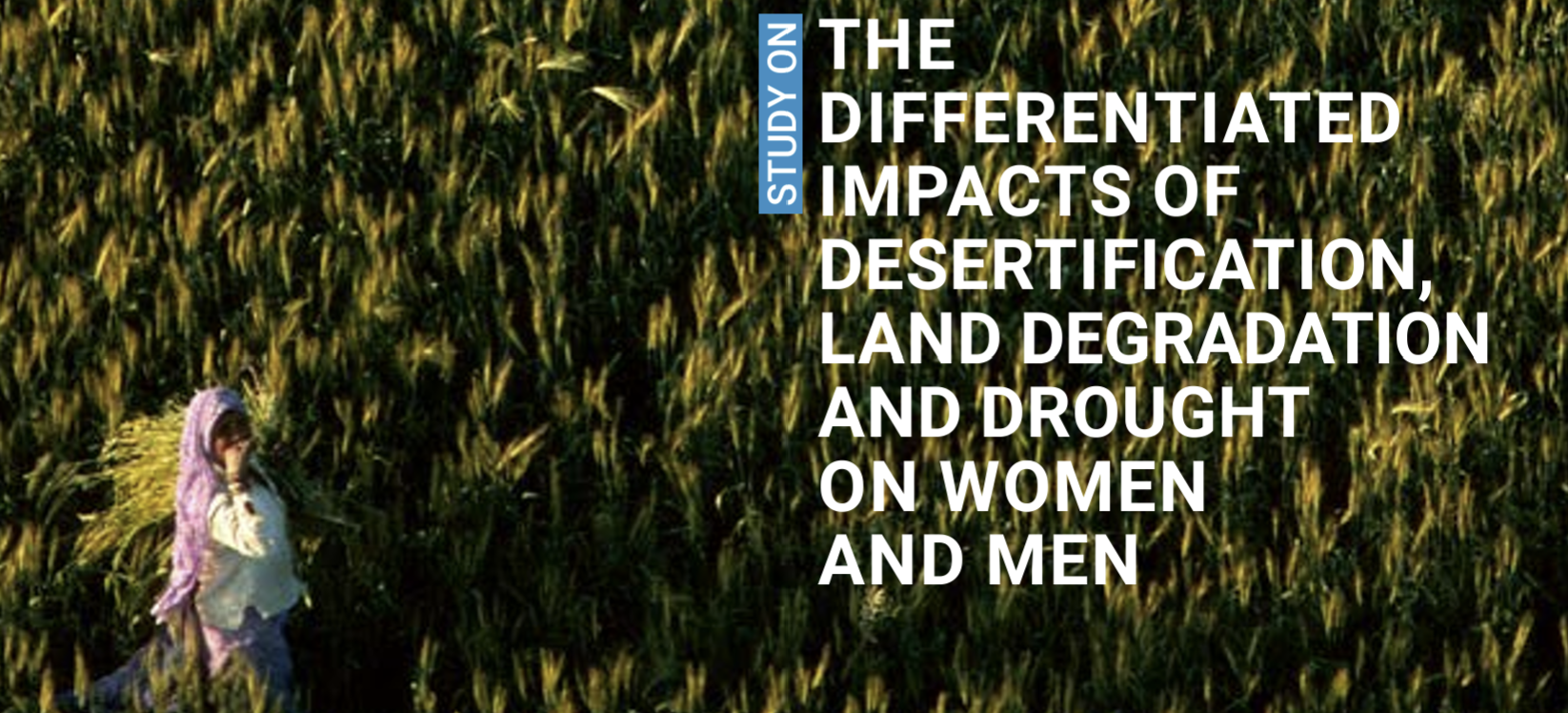This study launched at the Gender Caucus during the UNCCD COP15 in Abidjan, Côte d’Ivoire, demonstrates that desertification, land degradations and drought (DLDD) is not only about the land but about people. Climate, ecosystems and human societies are interdependent. Women make valuable contributions to land restoration efforts through recovery of traditional adaptation practices and in the design and implementation of new and sustainable methods – such as rainwater jars, new irrigation systems and seedling nurseries run by women, which produce drought-resistant and high-quality plants. When given access to agricultural technologies, technical training and climate science information, women’s contributions become broader and more effective.
The key findings of this study illuminate the nature of gender inequalities regarding land tenure, access to technologies and resources for sustainable land management, women’s involvement in decision-making on DLDD policies and actions, and the numerous difficulties caused by drought and land degradation in the daily lives of women and girls. It provides critical data that was long awaited, including data on women’s land rights.

